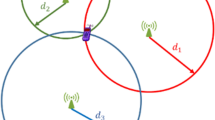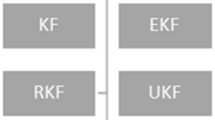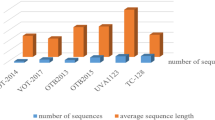Abstract
Due to its ease of implementation, the least mean square (LMS) algorithm is one of the most well-known algorithms for mobile communication systems. However, the main limitation of this approach is its relatively slow convergence rate. This paper proposes a booster using the Markov chain concept to speed up the convergence rate of LMS algorithms. The nature of Markov chains makes it possible to exploit past information in the updating process. According to the central limit theorem, the transition matrix has a smaller variance than that of the weight itself. As a result, the weight transition matrix converges faster than the weight itself. Therefore, the proposed Markov-chain based booster is able to track variations in signal characteristics and simultaneously accelerate the rate of convergence for LMS algorithms. Simulation results show that the Markov-chain based booster allows an LMS algorithm to effectively increase the convergence rate and further approach the Wiener solution. This approach also markedly reduces the mean square error while improving the convergence rate.
Similar content being viewed by others
References
T. Aboulnasr, K. Mayyas, A robust variable step-size LMS-type algorithm: Analysis and simulations. IEEE Trans. Signal Process. 45, 631–639 (1997)
W.-P. Ang, B. Farhang-Boroujeny, A new class of gradient adaptive step-size LMS algorithms. IEEE Trans. Signal Process. 49, 805–810 (2001)
G. Casella, R.L. Berger, Statistical Inference (Duxbury Press, N. Scituate, 1990)
N. Erdol, F. Basbug, Performance of wavelet transform based adaptive filters, in Proc. ICASSP (1993), pp. 500–503
J.B. Evans, P. Xue, B. Liu, Analysis and implementation of variable step size adaptive algorithm. IEEE Trans. Signal Process. 41, 2517–2535 (1993)
G. Forsythe, C. Moler, Computer Solution of Linear Algebraic Systems (Prentice Hall, New York, 1976)
C. Gazor, Predictions in LMS-type adaptive algorithm for smoothly time-varying environments. IEEE Trans. Signal Process. 47, 1735–1739 (1999)
S.B. Gelfand, Y. Wei, F.V. Krogmeier, The stability of variable step-size LMS algorithms. IEEE Trans. Signal Process. 47, 3277–3288 (1999)
M. Ghosh, G. Meeden, On the non-attainability of Chebychev bounds. Am. Stat. 31, 35–36 (1977)
L.C. Godara, Applications of array antenna to mobile communications, Part I: Performance improvement, feasibility, and system considerations. Proc. IEEE 85, 1031–1060 (1997)
L.C. Godara, Applications of array antenna to mobile communications, Part II: Beam forming and direction-of-arrival considerations. Proc. IEEE 85, 1195–1238 (1997)
S. Haykin, Adaptive Filter Theory (Prentice Hall, New York, 1995)
S. Haykin, Communication Systems (Wiley, New York, 2001)
S. Hosur, A.H. Tewfik, Wavelet transform domain LMS algorithm, in Proc. ICASSP (1993), pp. 508–510
R. Kwong, E.W. Johnston, A variable step size LMS algorithm. IEEE Trans. Signal Process. 40, 1633–1642 (1992)
J.C. Lee, C.K. Un, Performance of transform-domain LMS adaptive digital filters. IEEE Trans. Acoust. Speech Signal Process. 34, 499–510 (1986)
O. Macchi, Adaptive Processing: The LMS Approach with Applications in Transmission (Wiley, New York, 1995)
D.G. Manolakis, V.K. Ingle, M.S. Kogan, Statistical and Adaptive Signal Processing (McGraw-Hill, New York, 2000)
S.S. Narayan, A.M. Peterson, M.J. Narashima, Transform domain LMS algorithm. IEEE Trans. Acoust. Speech Signal Process. 31(4), 609–615 (1983)
S.M. Ross, Introduction to Probability Models (Academic Press, New York, 1997)
M. Rupp, The behavior of LMS and NLMS algorithms in presence of spherically invariant processes. IEEE Trans. Signal Process. 41, 1149–1160 (1993)
J.J. Shynk, Frequency-domain and multirate adaptive filtering. IEEE Signal Process. Mag. 9, 14–37 (1992)
D.T.M. Slock, On the convergence behavior of the LMS and the normalized LMS algorithms. IEEE Trans. Signal Process. 41, 2811–2825 (1993)
V. Solo, X. Kong, Adaptive Signal Processing Algorithms: Stability and Performance (Prentice Hall, New York, 1995)
L.-K. Ting, C.F.N. Cowan, R.F. Woods, Tracking performance of momentum LMS algorithm for a chirped sinusoidal signal, in Proc. EUSIPCO, vol. 3 (2000), pp. 985–988
J. Von Neumann, R.H. Kent, H.R. Bellinson, B.I. Habt, The mean square successive difference. Ann. Math. Stat. 12, 153–162 (1941)
B. Widrow, Fundamental relations between the LMS algorithm and the DFT. IEEE Trans. Circuits Syst. 34, 814–819 (1987)
J.H. Winters, Signal acquisition and tracking with adaptive arrays in the digital mobile radio system IS-54 with flat fading. IEEE Trans. Veh. Technol. 42, 377–384 (1993)
J.H. Winters, Smart antenna for wireless systems. IEEE Pers. Commun. 23–27 (1998)
Author information
Authors and Affiliations
Corresponding author
Rights and permissions
About this article
Cite this article
Sheu, JS., Woo, TK. & Wen, JH. A Novel Convergence Accelerator for the LMS Adaptive Filter. Circuits Syst Signal Process 31, 283–300 (2012). https://doi.org/10.1007/s00034-011-9287-8
Received:
Revised:
Published:
Issue Date:
DOI: https://doi.org/10.1007/s00034-011-9287-8




